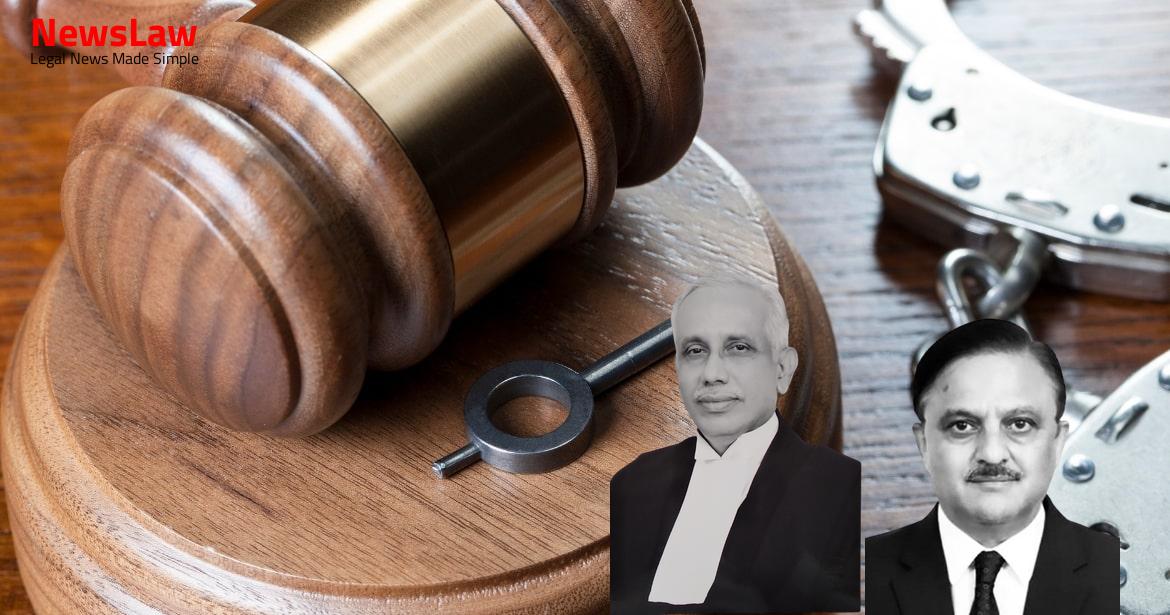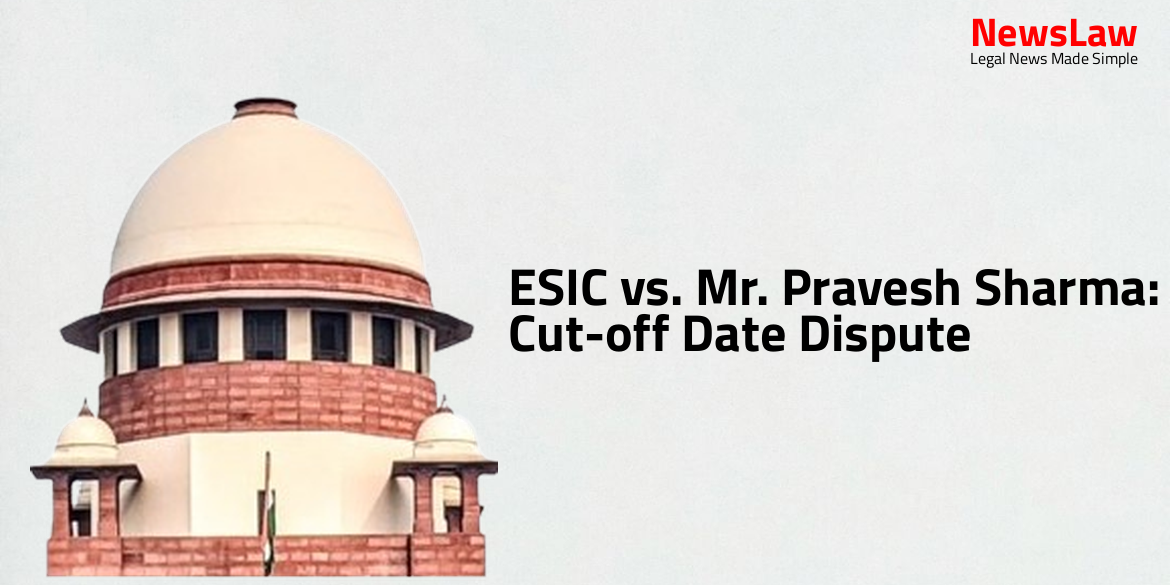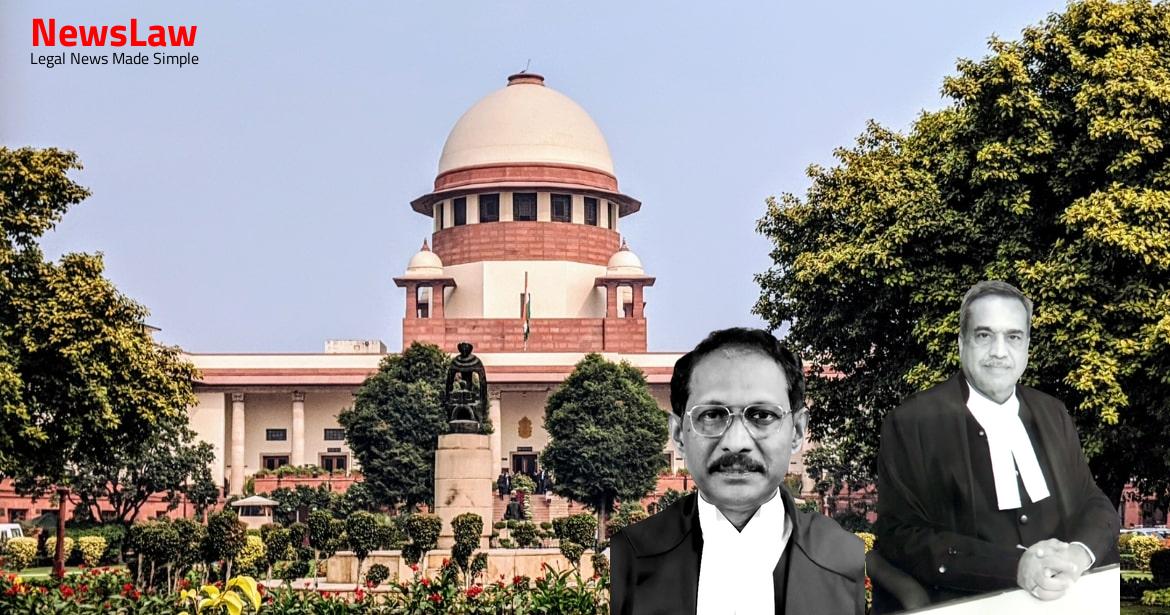Delve into the complex world of electricity laws and tariff regulations as we explore a recent legal case involving Discoms. The court’s detailed legal analysis sheds light on the obligations of Discoms and the methodology behind tariff determination. Stay tuned for insights into this important aspect of regulatory compliance and consumer protection.
Facts
- BSES Rajdhani Power Ltd. and BSES Yamuna Power Ltd. have filed appeals challenging certain findings of the Appellate Tribunal for Electricity in the common judgment and order dated 28.11.2014.
- The appeals were filed in response to the Tariff Order dated 26.08.2012 for Truing Up of financials for FY 2008-09, FY 2009-10, and Aggregate Revenue Requirement for FY 2011-12.
- The Appellants are Distribution Licensees (Discoms) as per the Electricity Act, 2003.
- The primary function of a Discom is to provide supply to premises upon consumer application and compliance with applicable laws.
- Discoms are required to ensure supply except in cases of force majeure events such as cyclones or floods.
Issue
- The substantial questions of law in the appeals involve the interpretation of Sections 3, 61(b), (c), (d) and (e), 62, 64 (read with the Tariff Policy) and 86(3) of the 2003 Act.
- The first issue questions whether the impugned findings on Issue No.1 are contrary to the provisions of the Act that mandate tariff to recover all costs of electricity distribution with a reasonable return and reward efficiency in performance.
- The determination of substantial questions of law is not dependent on the stakes involved in the case but on the impact it has on the rights of the parties involved.
Arguments
- The DERC has been accused of disregarding its statutory regulations and advice by refusing to periodically increase the tariff rate.
- Consumers’ interest on deposits paid by the appellants is deemed a legitimate expense.
- The Appellants claim that the DERC’s determinations post-privatization did not cover actual power purchase costs, leading to a significant revenue gap.
- Challenges by the Appellants against the APTEL’s findings on issues such as AT&C losses, depreciation methodology, salary disallowance, and interest on Consumer Security Deposit retained by DPCL.
- The Appellants argue that disallowing interest on Consumer Security Deposit in the ARR is misconstrued.
- The DERC is deemed responsible for protecting consumers’ interests as a Regulator.
- The Appellants are entitled to recover interest on Consumers Security Deposit held by DPCL, despite contentions of receiving double benefits.
- The tariff order is considered a quasi-judicial determination, and truing up cannot amend a tariff order.
Analysis
- During the analysis of the judgement, the key issues raised include the impact of salary increases, Pay Commission recommendations, and Revenue Collection
- The employee expenses for FY06 and FY07 were revised considering the Pay Commission recommendations and the net expenses were calculated
- Issues related to unauthorized electricity use, billing rates, and the sanctity of different functions were discussed
- The importance of adhering to tariff regulations and statutory transfer schemes was highlighted
- The role and powers of the DERC in tariff determination were outlined, including the tariff order and truing up exercises
- Specific issues like disallowance of fringe benefit tax and reduction in MUs for enforcement sale calculations were addressed
- Section 43 of the 2003 Act provides for the universal supply obligation of the Discoms.
- The Central Government is responsible for preparing the National Electricity Policy and tariff policy.
- The Appropriate Commission is required to issue a tariff order within 120 days of receiving an application.
- The tariff order issued by the Commission remains in force unless amended or revoked.
- The State Commissions, like DERC, have specific functions under Section 86 of the Act.
- Section 125 of the Act allows for appeals to the Supreme Court against decisions of the APTEL.
- An appeal can be filed if there is a substantial question of law as specified in Section 100 of the CPC.
- Sections 62 and 64 of the Act outline the procedure for determining tariffs for electricity supply.
- Section 126 deals with unauthorized use and theft of electricity, specifying assessment procedures.
- Section 61 provides guiding principles for tariff regulations.
- The test to determine whether a question is a substantial question of law was laid down in Sir Chunilal V. Mehta & Sons Ltd. v. The Century Spg. & Mfg. Co. Ltd.
- The word ‘substantial’ qualifying ‘question of law’ means of having substance, essential, real, of sound worth, important, or considerable.
- In Gujarat Urja Vikas Nigam Ltd., the Court considered a case where tariff was incorporated in a power purchase agreement.
- The Court held that the tariff agreed upon between the parties, even in a contractual context, cannot be altered except by mutual consent.
- Price fixation exercise is predominantly legislative in character, unless made quasi-judicial by a specific statute.
- The concept of ‘truing up’ is important in safeguarding consumers’ interests and ensuring the cost recovery of electricity in a reasonable manner.
- The methodology adopted by the DERC is contrary to the settled principle of law.
- When the law deems a certain imaginary state of affairs as real, it must be treated as such without hesitation.
- The assessed energy must be considered as supply by the appellants in enforcement cases.
- The 100 units should be treated as ‘sales’ in a logical manner.
- Disagreement with the respondent’s stand on the issue.
- Directing the DERC to consider assessed energy for calculation of enforcement sales and allowing the impact of the same.
Decision
- Parties to bear their respective costs.
- The appeals are allowed.
- The orders of DERC and the judgment of APTEL are set aside.
Case Title: BSES RAJDHANI POWER LTD. Vs. DELHI ELECTRICITY REGULATORY COMMISSION. (2022 INSC 1105)
Case Number: C.A. No.-004324-004324 / 2015



